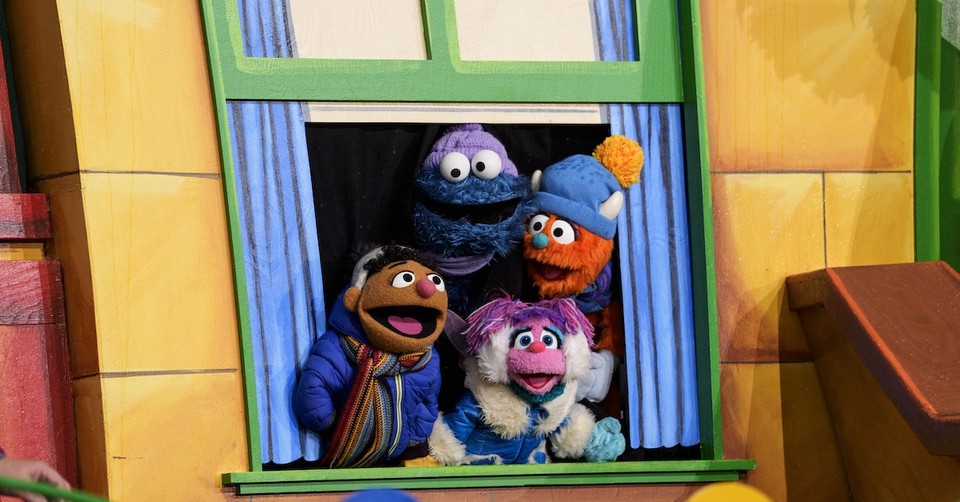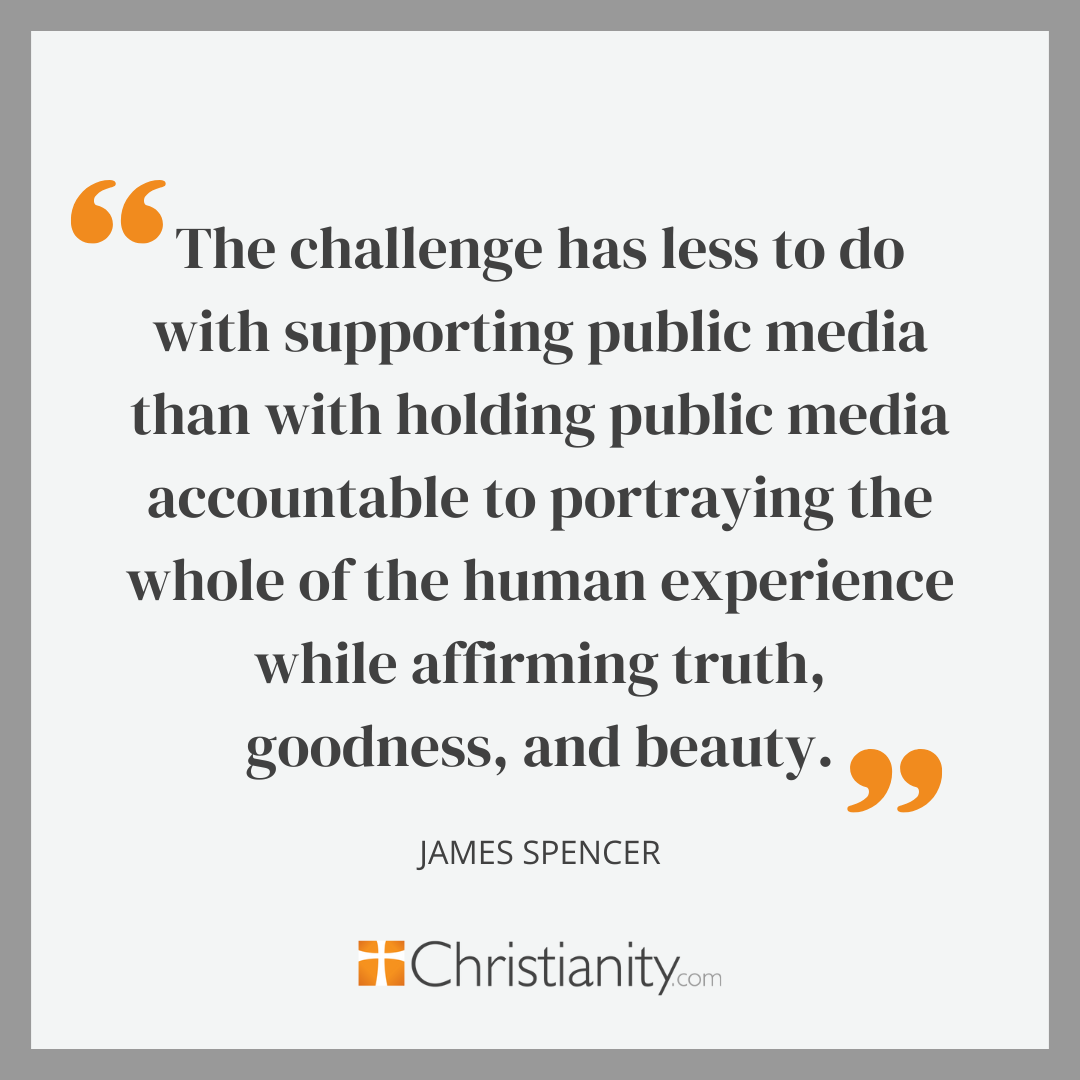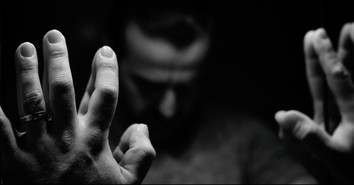What Christians Should Know about the End of Federal Support for Public Media

Attempts to defund public media aren’t new. As early as 1969, Fred Rogers defended public media to the U.S. Senate Subcommittee. CPB funding was reduced by 20% in the Reagan era, with a complete defunding blocked in the 1990s. In 2011, the House—driven by a Republican majority—voted to bar NPR from receiving federal funds. The recently passed Rescissions Act of 2025 rescinds federal funding previously allocated to the Corporation for Public Broadcasting (CPB) for the fiscal years of 2026 and 2027, including PBS and NPR funding. A political battle beginning soon after the establishment of CPB has—at least for the next two years—been settled.
The Act will likely mean the end of many CPB-funded programs and stations. In a statement issued on July 18th, CPB noted that the loss of funding would likely force “many local and public radio and television stations” to close. With satellite television and radio, cable, streaming services, social media content (e.g., YouTube, TikTok, etc.), Spotify, and a host of platforms I’m probably forgetting, why all the angst about eliminating public broadcasting?
To answer that question, we need to go back to 1967—the year the CPB was established as part of the Public Broadcasting Act of 1967 (“the Act”). Prompted by a desire to bolster educational television in the United States, the Act sought to support, improve, and expand non-commercial programming on radio and television. Since its establishment in 1967, shows like Nova, Sesame Street, and Reading Rainbow have all been funded through CPB funding.
Before signing the Act, President Lyndon B. Johnson noted,
“At its best, public television would help make our Nation a replica of the old Greek marketplace, where public affairs took place in view of all the citizens. But in weak or even in irresponsible hands, it could generate controversy without understanding; it could mislead as well as teach; it could appeal to passions rather than to reason. If public television is to fulfill our hopes, then the Corporation [for Public Broadcasting] must be representative, it must be responsible—and it must be long on enlightened leadership.”
This brief excerpt from Johnson’s speech highlights some of the challenges of public media, particularly in a politically polarized environment. Could public media show itself to be sufficiently valuable to a population with varied political and ideological beliefs? Given the relatively consistent attempt to cut CPB funding, one might assume that public media failed to be all things to all people.
Yet, Uri Berliner, a senior business editor at NPR, suggests that the leftward shift of NPR is relatively recent, admitting that “NPR’s audience tilted a bit to the left” while still being largely representative of America at large, with 26% of listeners describing themselves as conservative and 37% as liberal in 2011. He goes on to note that by 2023, NPR was losing conservatives, moderates, and traditional liberals. After detailing the various reasons NPR lost the public’s trust—I’d encourage you to read the piece yourself—Berliner suggests that defunding isn’t the solution, noting, “As the country becomes more fractured, there’s still a need for a public institution where stories are told and viewpoints exchanged in good faith.” He goes on to suggest, “Defunding, as a rebuke from Congress, wouldn’t change the journalism at NPR. That needs to come from within.”

On one hand, I agree with Berliner. NPR’s leadership and journalists need to be accountable to their constituency by striving to put forth the best possible version of the truth in every instance. You can’t eliminate bias, but you don’t need to lean into it either. NPR leadership is responsible, as are the journalists producing reports. On the other hand, because the Act of 1967 made pains to limit political influence over CPB except in the area of funding, the government’s only recourse was to hold CPB responsible.
Can Christians support public media that promotes truth, goodness, and beauty—a clear sense of the common good? I think so. It can’t be the end of what Christians do. Because truth, goodness, and beauty have the Triune God as their source, it is appropriate for Christians to support endeavors that promote a common good while also pointing beyond them to the Triune God. The challenge has less to do with supporting public media than with holding public media accountable to portraying the whole of the human experience while affirming truth, goodness, and beauty. The arrangement established in the Act to create and fund CPB could work so long as the people CPB was serving had a shared sense of the common good. That shared sense is, at the very least, waning.
The Act establishing CPB created an accountability sink—a structure in which decision-making authority is funneled away from individuals and toward opaque and impersonal processes. So long as the federal government continued to fund CPB, public media could neglect its responsibility to report, even if such reporting might lead the public toward political outcomes that some of those in public media don’t want. By embedding the funding for public media within the complexities of the United States’ political processes, CPB-funded entities were largely insulated from accountability mechanisms to which other media outlets must attend—advertising dollars, individual subscriptions, ratings, etc. The basic structure of the CPB agreement made CPB accountable to everyone and to no one all at once.
Christians shouldn’t necessarily be against media outlets that present the whole of the human condition in the news and stories. Much of the programming on PBS and NPR is quite enjoyable and informative. However, we also have to be realistic about our context. Competition has increased. It seems implausible that any set of networks will be able to produce the same sort of coordinated common knowledge that was possible at a time when there were three major networks plus PBS. Part of the question, then, that must be asked about public media is whether it can serve the same purpose it was established to serve in 1967. That seems unlikely.
Photo Credit: ©GettyImages/NBC / Contributor


Originally published July 22, 2025.







